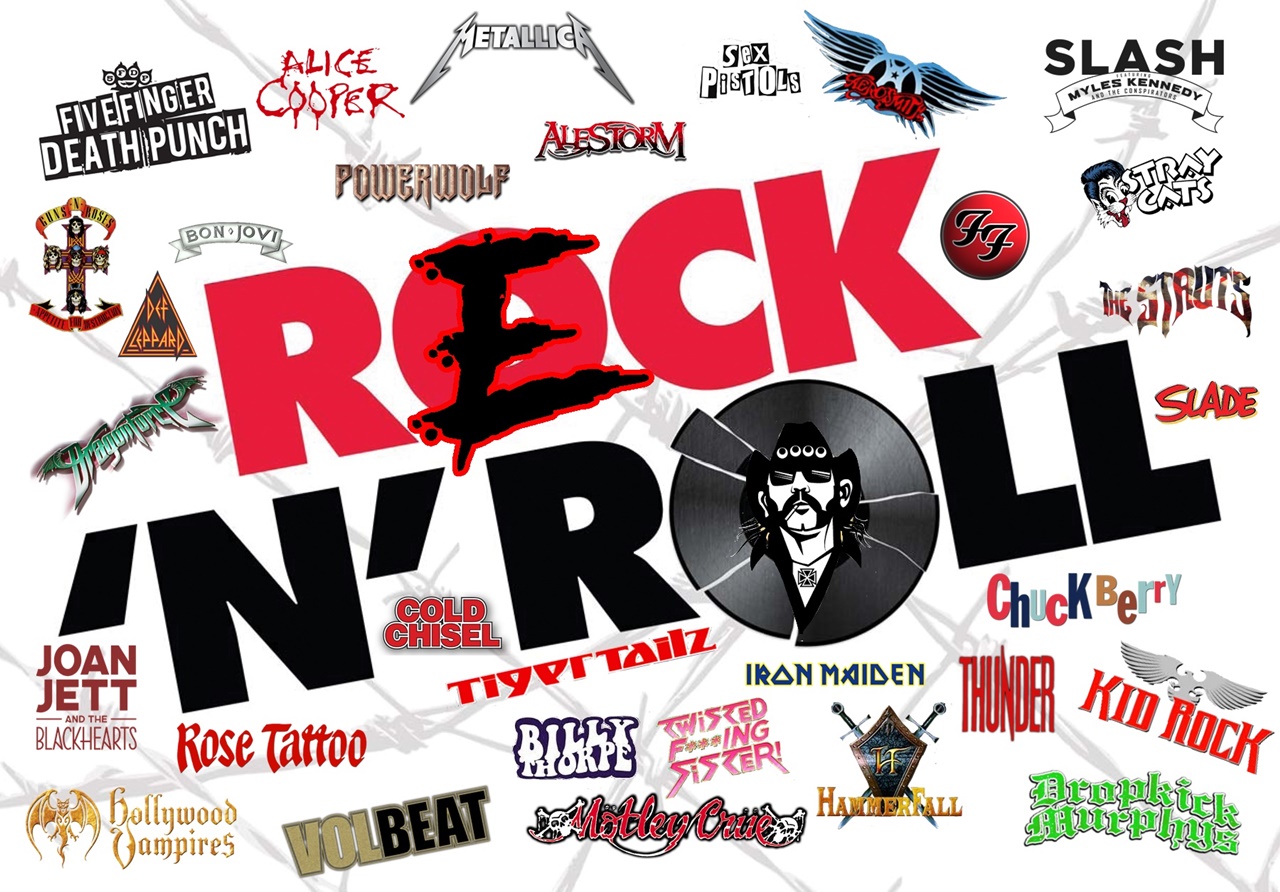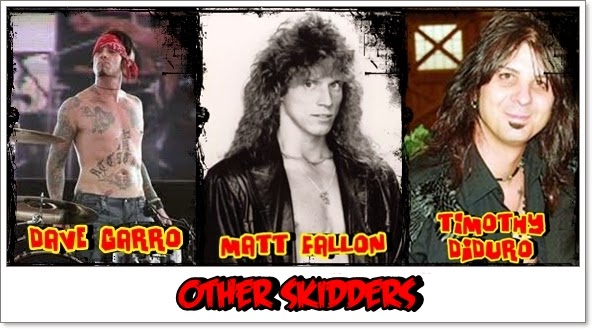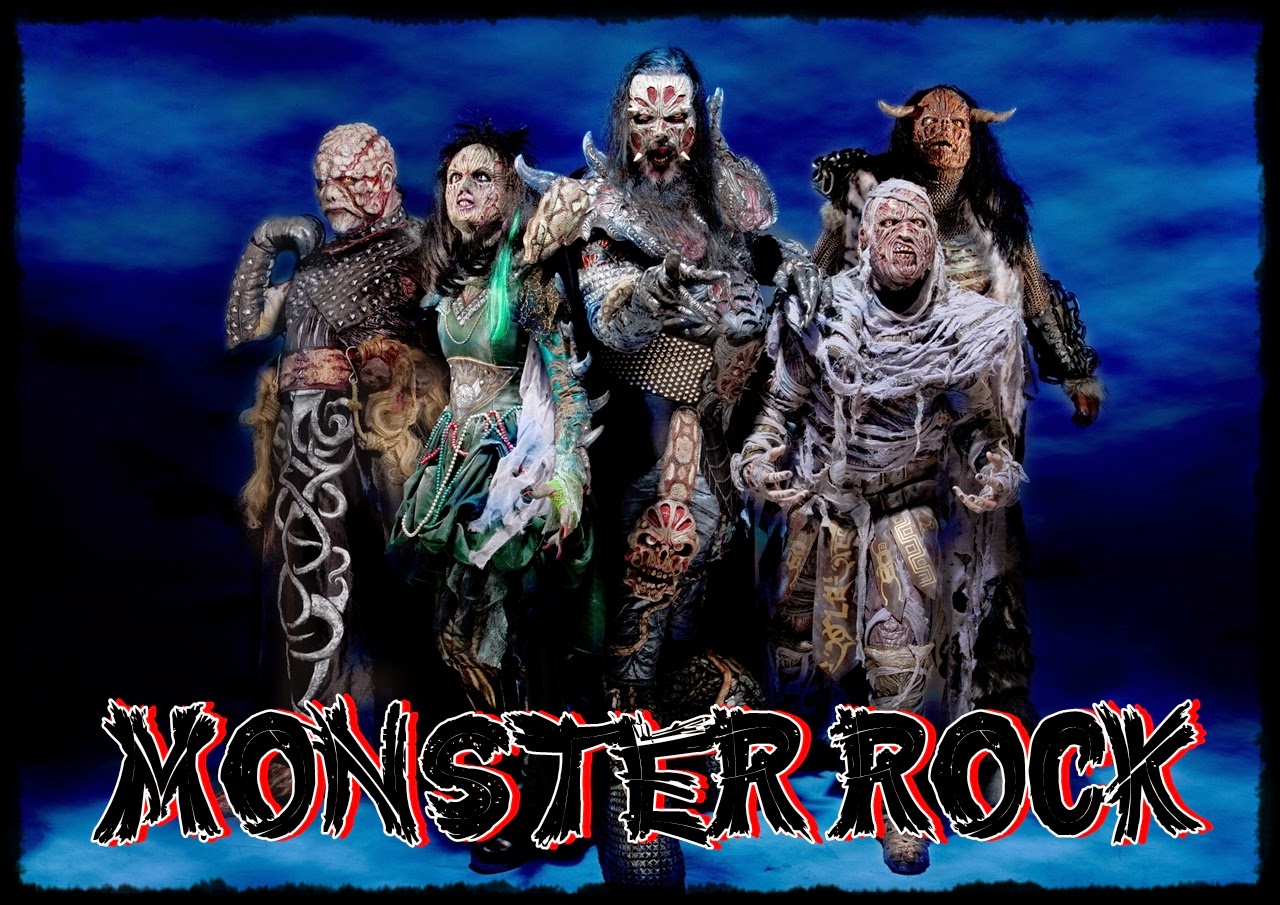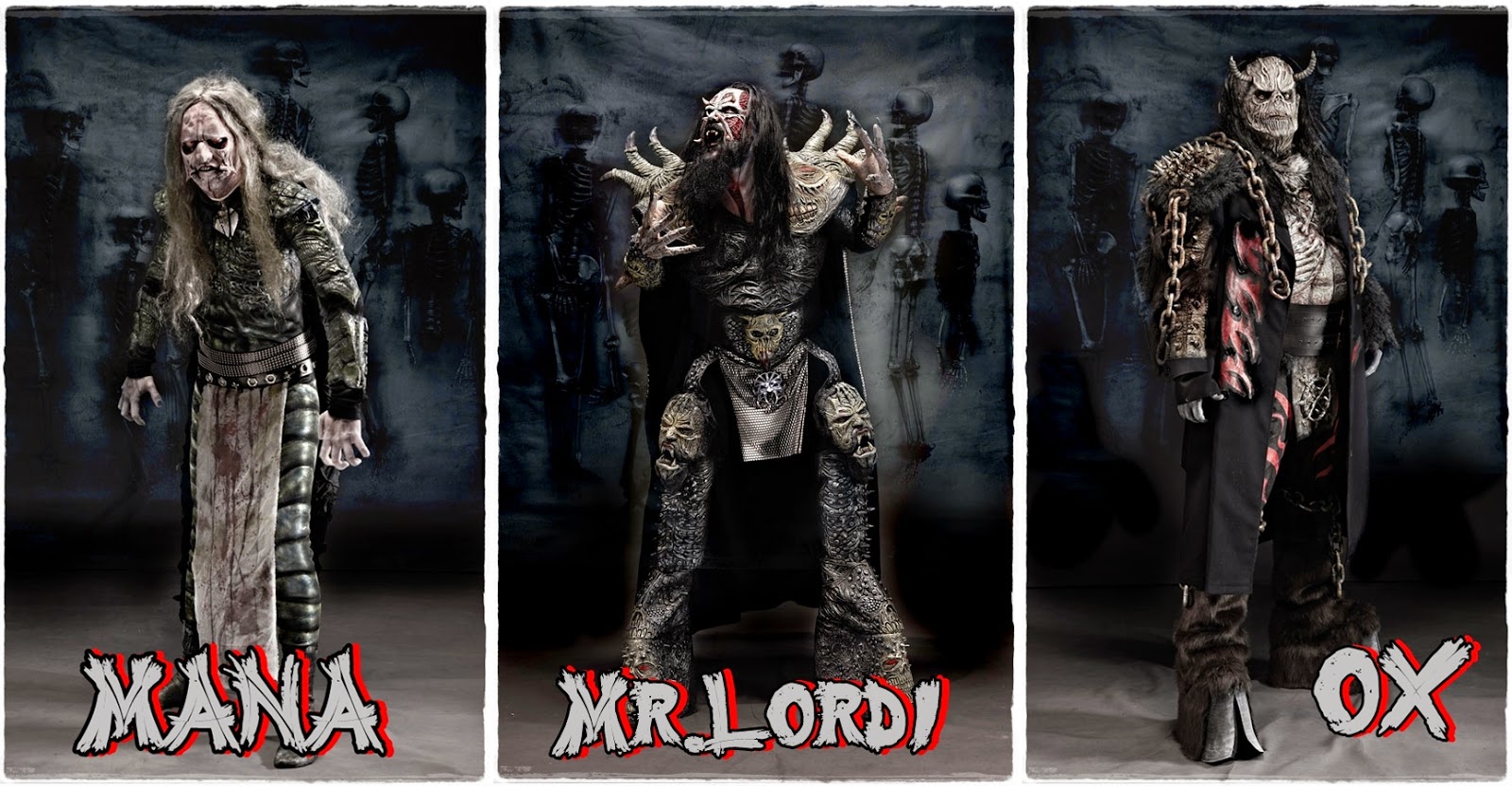Lots of people lump Skid Row from Noo Joisey into the hair metal genre, I think its fair to say that if you say that to Rachel Bolan or Snake, even today, your gonna get abused something chronic....I wouldnt even put them in the same area as Bon Jovi, who they were mates with...Skid Row had their own sound...AND WHAT A SOUND.
I did see them in Sydney when they were supporting Gunners, when they were at the height of their powers with Baz on vocals....speaking of Mr Bach, I did go to see him at a couple of Sydney venues when he toured solo, sadly he pulled the pin early both times..I'm over it now, at the time I was annoyed....but not now.
Skid Row were one of the very last metal bands to hit mainstream before grunge ( and the dreanged record execs there in) stuffed everything in the early '90s. While the band's self-titled debut employed standard pop-metal riffs and generic lyrics ( to great success I might add), 1991's Slave to the Grind and 1995's Subhuman Race broke away from the pop-metal mold with hard, thrash guitar riffs and unique songwriting techniques. Though personal differences and changing trends would eventually tear the core lineup apart by 1996, Skid Row showed tremendous promise during their short time in the spotlight.
Skid Row were formed in 1986 by bassist Rachel Bolan and former Bon Jovi guitarist Dave "The Snake" Sabo. The pair added guitarist Scott Hill, drummer Rob Affuso, and a larger than life vocalist named Sebastian Bach to the lineup by early 1987, and the band spent the next year and a half playing a series of local clubs in the eastern U.S. Having remained in contact with Jon Bon Jovi, Sabo convinced the established rock star to land Skid Row a record deal with Atlantic Records. In 1989, the band released its first album, Skid Row, which went multi-platinum on the strength of the Top 40 singles "18 and Life" and "I Remember You." Success came with a backlash, however -- the band members had unknowingly signed away much of their royalties, and Sebastian Bach's wild behavior landed the group in additional trouble. During the subsequent tour, Bach garnered harsh criticism for a T-shirt he publicly sported displaying the message "AIDS KILLS FAGS DEAD." Suits were also filed against Bach after a concert during the supporting tour, where the singer allegedly threw a glass bottle into the crowd and injured a young female fan.
Nonetheless, Skid Row's muscular songcraft retained a devoted audience. Released in 1991, Slave to the Grind debuted at number one on the Billboard chart, an unprecedented accomplishment for a metal band. While the album did not chart any real radio hits, Grind received stronger critical praise and eventually reached platinum status. However, like so many of their peers, Skid Row lost much of their fan base during the grunge invasion of the '90s. As Nirvana stormed the scene in 1992, Skid Row took a hiatus, waiting out the grunge period and pondering breakups (ironically, Nirvana had once gone under the name Skid Row in the '80s). Skid Row returned in 1995 with Subhuman Race, which surprisingly charted in the Top 40 but otherwise did not attract any real attention.
Forty Seasons: The Best of Skid Row During the supporting tour, tensions between the group members ran high and Skid Row disbanded shortly afterward. Bach went on to form the Last Hard Men with Smashing Pumpkins drummer Jimmy Chamberlin, but the group broke up after recording a cover of Alice Cooper's "School's Out" for the Scream soundtrack in 1996.
Plans to record new songs for the Skid Row greatest-hits album, 1998's Forty Seasons, fell through, and Bach went on to form a solo project and portray the title role in the Broadway musical Jeckyll and Hyde. In mid-2000,
Skid Row re-formed in 1999 with new lead vocalist Johnny Solinger, formerly of Solinger, and drummer Charlie Mills. Mills soon left the band and was replaced by Phil Varone (formerly of Saigon Kick). After re-forming, they opened for KISS on their farewell tour, and have also played with other 1980s metal bands such as Poison. They have been on tour every summer. In 2002 they were part of the Rock Never Stops Tour. The new lineup has shared the stage with such acts as Aerosmith, Kid Rock, Def Leppard, Sammy Hagar, as well as many others from their genre.
Skid Row released their fourth full-length studio album, Thickskin, in 2003, which was their first album to feature Solinger and their first studio album in 8 years. In 2004, Dave Gara came on as drummer
Skid Row on a reunion with Bach
Dave Sabo: "Basically, in all honesty, it just didn't work out anymore. It worked for awhile, and then it didn't work. I've always said this: he's a great singer, a great frontman. The two of us, or maybe all of us, stopped getting along. I've always been the one, personally, that I live my life a certain way where if it's not fun anymore and not enjoyable, I have to get away from it. Life is too short — I want positivity in my life — and I'm sure he felt the same way. I think that we just got to a point where we did what we would do up until that particular point and it was time to go different ways. I have no animosity towards him whatsoever, I wish him all the best, I hope he does wonderful things; he's done well for himself. But, for me, my main focus is right now, with SKID ROW. I have a relationship with the other four members in my band that I'm really proud of and really happy of, and I'm happy to be creating new music and promoting it.
Rachel Bolan: "I honestly feel that questions about him are so far off now, because Johnny is our singer and he has been in the band for 14 years. So answering a question like that is kind of a waste of time. I hope you understand."...."I'd really rather not talk about him – but I can say I think everybody has a beef with him, honestly."
Live in 2012
Sebastian Bach: "Rachel Bolan doesn't like me – but I would work with him any time, because the result of that dynamic is really good music. Nothing good comes easy. When I read interviews with my old band and they say, 'We get along great with our new singer – we have barbecues and drink tequila together,' You know what? I don't give a fuck about barbecues. You don't hear Mick Jagger saying he loves working with Keith Richards and that they have barbecues together. You hear Mick saying that he hates working with Richards. I don't think you have to be best friends with everybody to work with them." Bach's most recent outburst against his former colleagues came when he accused them of being "allergic to cash" in regard to a classic lineup reunion.
"I wouldn't be doing a reunion for the sound of the band. It's more like a stunt, like, people don't care about the sound of the band really. They would like to see the five guys together in a reunion it doesn't matter how we play, hehehe. Doesn't make any difference at all, that's popular culture. The public likes that kind of thing, I don't know why really but that's the way it is."
Current members
Rachel Bolan – bass, backing vocals (1986–present)
Dave "The Snake" Sabo – rhythm & lead guitars, backing vocals (1986–present)
Scotti Hill – lead & rhythm guitars backing vocals (1987–present)
Johnny Solinger – lead vocals (1999–present)
Rob Hammersmith – drums (2010–present)
Former members
Matt Fallon – lead vocals (1986–1987)
Cody Howell – bass (1986)
Steve Brotherton – guitar (1986, 2005)
Kurtis Jackson – guitar (1986, 2005)
John Ratkowski Jr. – drums (1986–1987)
Jim Yuhas – rhythm guitar (1986–1987)
Rob Affuso – drums (1987–1998, 2002)
Sebastian Bach – lead vocals (1987–1996)
Sean McCabe (Shawn Mars) – lead vocals (1997–1998)
Charlie Mills – drums (1999–2000)
Phil Varone – drums (1999–2004)
Timothy DiDuro – drums (2004)
Dave Gara – drums (2004–2010)
Studio albums
Skid Row (1989)
Slave to the Grind (1991)
Subhuman Race (1995)
Thickskin (2003)
Revolutions per Minute (2006)
EP's and Live albums
B-Side Ourselves (1992)
Subhuman Beings on Tour (1995)
United World Rebellion: Chapter One (2013)
Compilations
40 Seasons: The Best of Skid Row (1998)
Videos
Oh Say Can You Scream (1990)
No Frills Video (1993) Road Kill (1993)
Under the Skin (2003)
Singles
"Youth Gone Wild" "18 and Life" "I Remember You" "Piece of Me" "Monkey Business" "Slave to the Grind" "Wasted Time" "In a Darkened Room" "Quicksand Jesus" "Youth Gone Wild / Delivering the Goods" "My Enemy" "Breakin' Down" "Into Another" "Ghost" "New Generation" "I Remember You Two" "Shut Up Baby, I Love You" "Strength"
There you go...Catch ya














































